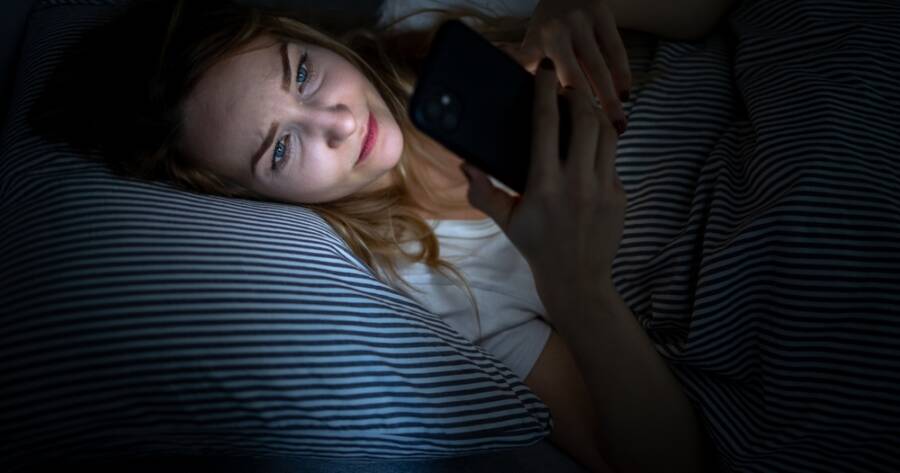In today’s digital world, many of us spend our evenings scrolling through phones, watching TV, or working on laptops. While screen habits may feel harmless, they could be affecting the quality of our sleep. Blue light—emitted by screens and certain LED lighting—can interfere with your body’s natural sleep-wake cycle. Too much exposure before bed may make it harder to fall asleep, reduce sleep quality, and leave you feeling less rested. Understanding this connection is key to improving your nighttime routine.
What Is Blue Light and Why Does It Matter?
Blue light is a type of high-energy visible (HEV) light found naturally in sunlight. During the day, it helps boost alertness, mood, and cognitive function. The problem occurs when we’re exposed to artificial sources of blue light after sunset.
Our bodies rely on natural light cues to regulate circadian rhythms, the internal clock that controls when we feel awake and when we feel sleepy. Blue light suppresses the production of melatonin, a hormone that signals the body to prepare for sleep. When melatonin levels are disrupted, falling asleep can become more difficult and sleep may be less restorative.
Sources of Evening Blue Light
Many everyday devices emit blue light, often without us realizing how much exposure we’re getting. Smartphones, tablets, and computer monitors are among the most significant contributors. Flat-screen TVs, e-readers with backlit screens, and even some LED household lighting can also emit high levels of blue light.
The rise in remote work and streaming entertainment has increased the number of hours people spend in front of screens, making it easier to carry these habits late into the evening. Even a quick check of your phone in bed can give your brain a burst of stimulating blue light that delays the onset of sleep.
Signs You Might Be Getting Too Much Blue Light at Night
If you have trouble falling asleep, wake frequently during the night, or feel groggy in the morning despite enough time in bed, excessive blue light exposure could be a factor. Some people also experience eye strain, headaches, or general restlessness after using screens for long periods at night.
While these symptoms can have other causes, noticing a pattern—especially if they improve when you cut back on nighttime screen time—can indicate that blue light is playing a role. The effects may be more pronounced in people who already have trouble sleeping or who work irregular hours.
Reducing Blue Light Exposure Before Bed
There are practical ways to limit blue light in the hours leading up to bedtime. One simple approach is to create a “screen curfew,” turning off devices at least one hour before you plan to sleep. This allows melatonin levels to rise naturally.
If avoiding screens entirely isn’t realistic, consider using built-in night mode features on your phone, tablet, or computer, which shift the display to warmer colors. Special glasses designed to filter blue light are also available, though research on their effectiveness for improving sleep is still limited. Adjusting household lighting to warmer tones in the evening can help create a more sleep-friendly environment.
Finding Screen-Free Evening Activities
Replacing screen time with relaxing activities can make winding down at night easier. Reading a physical book, listening to calming music, practicing gentle stretching, or meditating are all good options. Spending time talking with family, journaling, or preparing for the next day can also be satisfying ways to transition from a busy day into a restful night.
These activities not only reduce blue light exposure but also help signal to your body that it’s time to relax. Over time, developing a consistent pre-sleep routine can strengthen your circadian rhythm and make it easier to fall asleep naturally.
Give Your Eyes and Mind a Break
Too much blue light before bed can disrupt your body’s natural rhythm, making it harder to get the rest you need. By being mindful of your evening habits and finding ways to limit screen exposure, you can support healthier sleep patterns.
Whether you choose to set a digital curfew, adjust device settings, or replace screens with calming activities, small changes can have a big impact. Protecting your sleep is one of the best ways to improve overall well-being—and it starts by giving your eyes and mind a break before bedtime.

